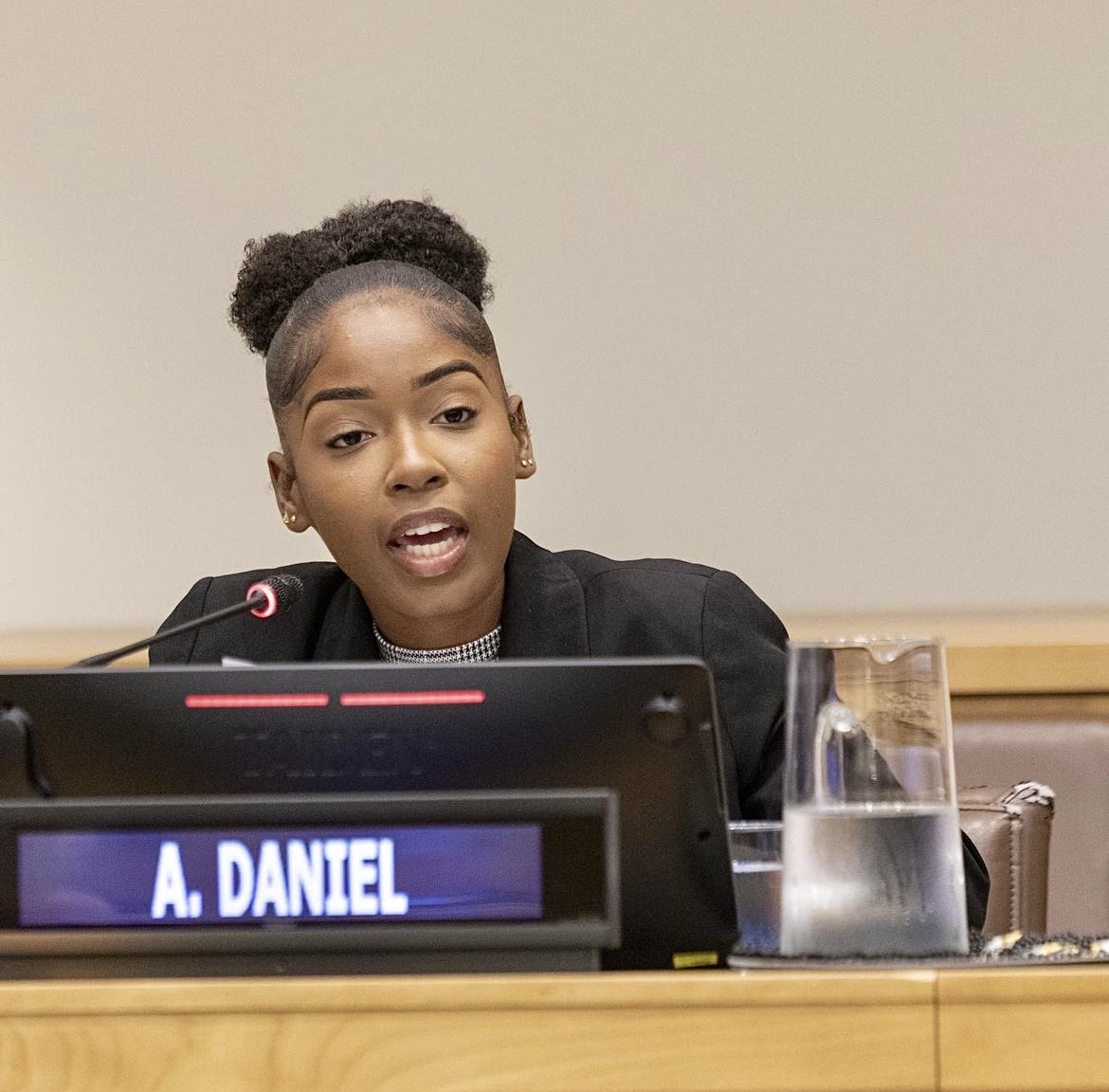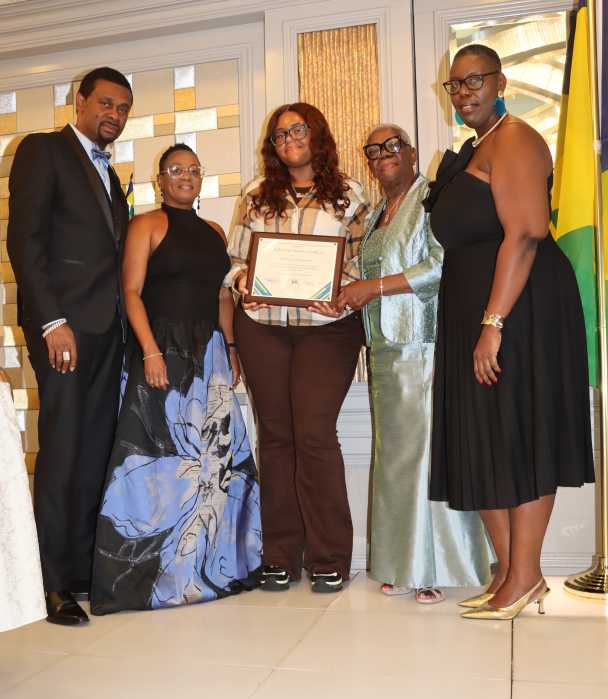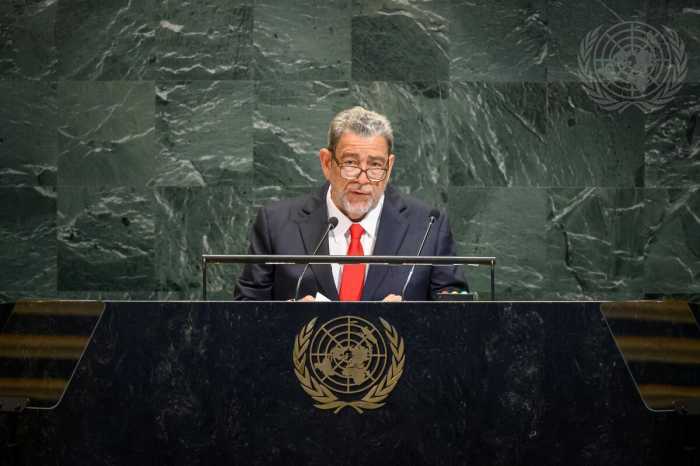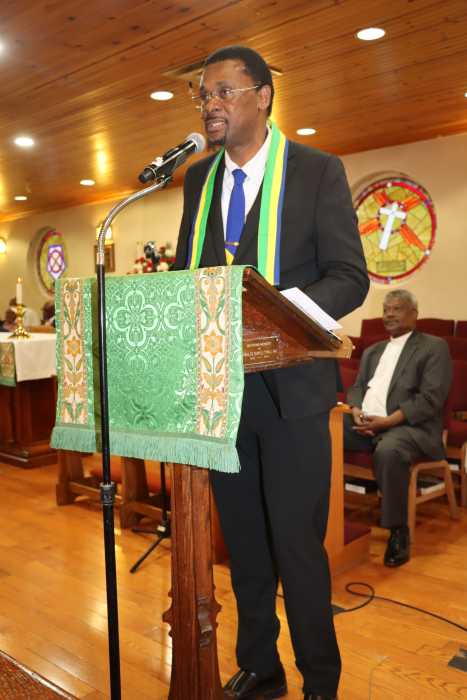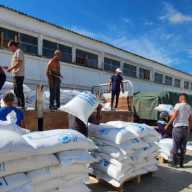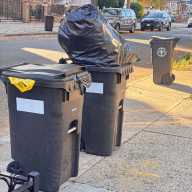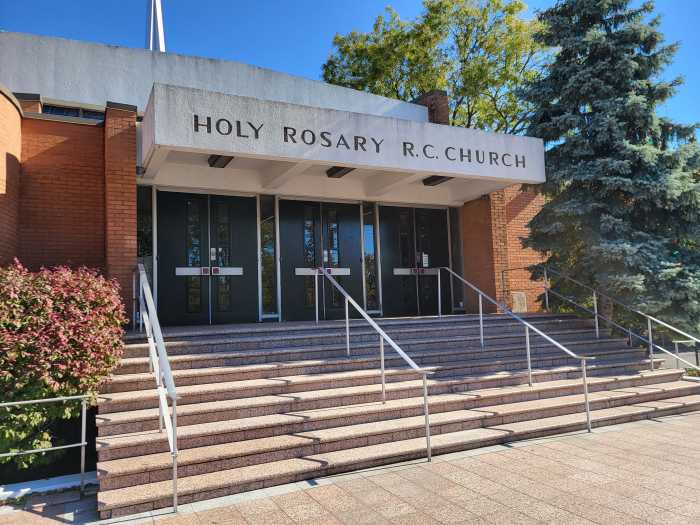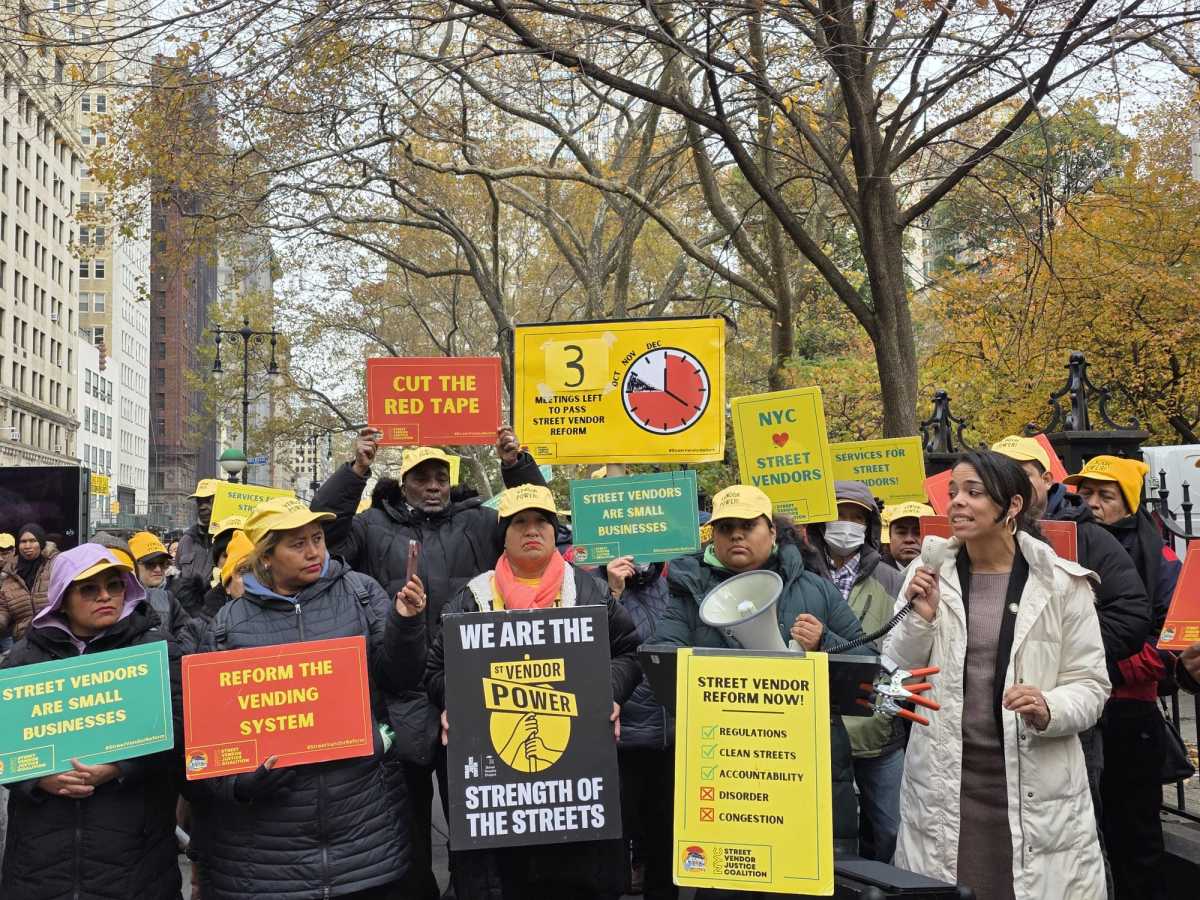Adia S. Daniel, a passionate and driven 17-year-old, second-year student of the St. Vincent and the Grenadines Community College, has told a compelling story on climate change during a special session of the United Nations Children’s Fund (UNICEF) Executive Board Meeting.
“Imagine a world where the sky darkens, the winds howl with an unearthly fury, the sea rises like a wrathful beast, and a child crumbles to their knees in fear,” said Daniel, who, earlier this year, was appointed to the Climate Change Sectoral Group by the St. Vincent and the Grenadines’ Prime Ministerial Advisory Council on Youth.
“This is not a scene from a horror movie, but a grim reality that we in the Caribbean face due to the devastating impact of climate change,” added Daniel, who is dedicated to her role as a youth advocate, working with organizations such as UNICEF, Unite2030, Caribbean Youth Gender & Equality Network, and Equal Rights, Access & Opportunities SVG to advocate for policy reform and improved mental health support for the youth in her community.
Daniel’s commitment to mental health and climate action resulted in her being appointed UNICEF’s Caribbean Youth Mental Health Focal Point for St. Vincent and the Grenadines.
She has since been a part of the Let’s Unpack It network that has recently launched mental health resources of which she is a co-author, and has participated in UNICEF’s Youth Advocacy Guide Training in Barbados, becoming a YAG Champion Trainer.
“Hurricanes, once rare occurrences, have become all too common in our region, leaving destruction and despair in their wake – homes destroyed, livelihoods lost and lives shattered,” Daniel told the UNICEF Special Session on Climate Change. “To many, my region is a tourism hotspot, but to me and thousands of my peers, our lived reality is our countries are in the crosshairs of climate change.
“I love our region, but I fear for our islands,” she lamented.
In telling a story from a friend living in one of the most recent islands ravaged by “a cruel category 5 hurricane,” the first of its kind in the history of the Caribbean on the verge of the hurricane season, a result of skyrocketing temperatures and climate change, Daniel said the friend was awakened in the wee hours of Jul. 1 by Hurricane Beryl’s gusty winds.
“She experienced fear, like no other, as her home and those around her were torn asunder by the winds,” Daniel said. “Roofs blew away, leaving them to seek shelter under trees, in barrels, and what was left of infrastructure on the island.
“The fear matched only the devastation unfolding before their eyes, as the island they called home was now in ruins – anxiety, fear, loss, suffering, being overwhelmed,” she added.
“How many more hurricanes and extreme climate crisis events are we going to endure until we act effectively?” Daniel asked the UNICEF Special Session. “This is not a warning – more so, a plea for strengthened action. If we do not act and continue to work diligently to find sustainable solutions to the climate crisis, not only will we bear the consequences now but for years to come.”
Equally important, she said the correlation between climate change and mental health should not be forgotten.
“Now, more than ever, is the time to invest in climate crisis recovery strategies to assist children in coping with these complex emotions we feel when a climate crisis occurs,” she urged, noting that UNICEF has successfully implemented and executed mental wellness support programs and resources such as Young Caribbean Minds and Return to Happiness in shelters across affected islands, where children and youth have been integrally involved in facilitating sessions and distributing donation packages on the ground.
“However, while we are grateful for these efforts, this is not my round of applause to you,” Daniel said. “For, as world leaders, stakeholders and, most importantly, advocates, there is still much more work to be done.”
But she said that, amid the chaos and devastation of Hurricane Beryl and the climate crisis, “there is a glimmer of hope: the youth of the Caribbean and Small Island Developing States.
“Our children, the future stewards of this planet, are not mere bystanders in this unfolding crisis,” she added. “Rather, they are the voices of reason, the champions of change.”
Daniel said it is imperative that children be involved in the dialogues and initiatives surrounding climate change, “for we are the ones who will inherit the consequences of our action, or inaction.
“Where the beauty of our islands is matched only by the fragility of our ecosystems, the need for children to be at the forefront of decision-making discussions in climate action is more pressing than ever,” she said, stating that, as she witnesses the catastrophic effects of climate change on her own island, she also sees children across the region starting movements, “lobbying for policy-making and law reform and creating strategic action plans.
“But we cannot do this without you,” Daniel warned. “We need your unwavering support and attention to manage the grave effects of climate change on Small Island Developing States. This is not just an environmental issue, but also economic, social and political.
“Let us empower children, educate children and inspire children to act, instilling in them a sense of responsibility towards our planet, our home and our future,” she added.


